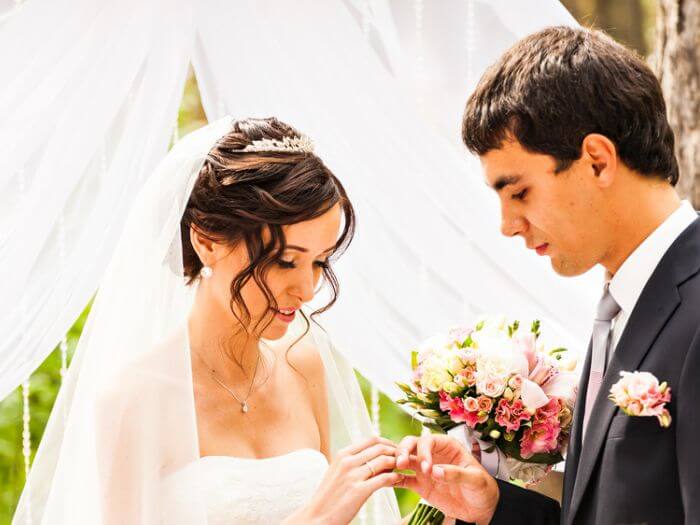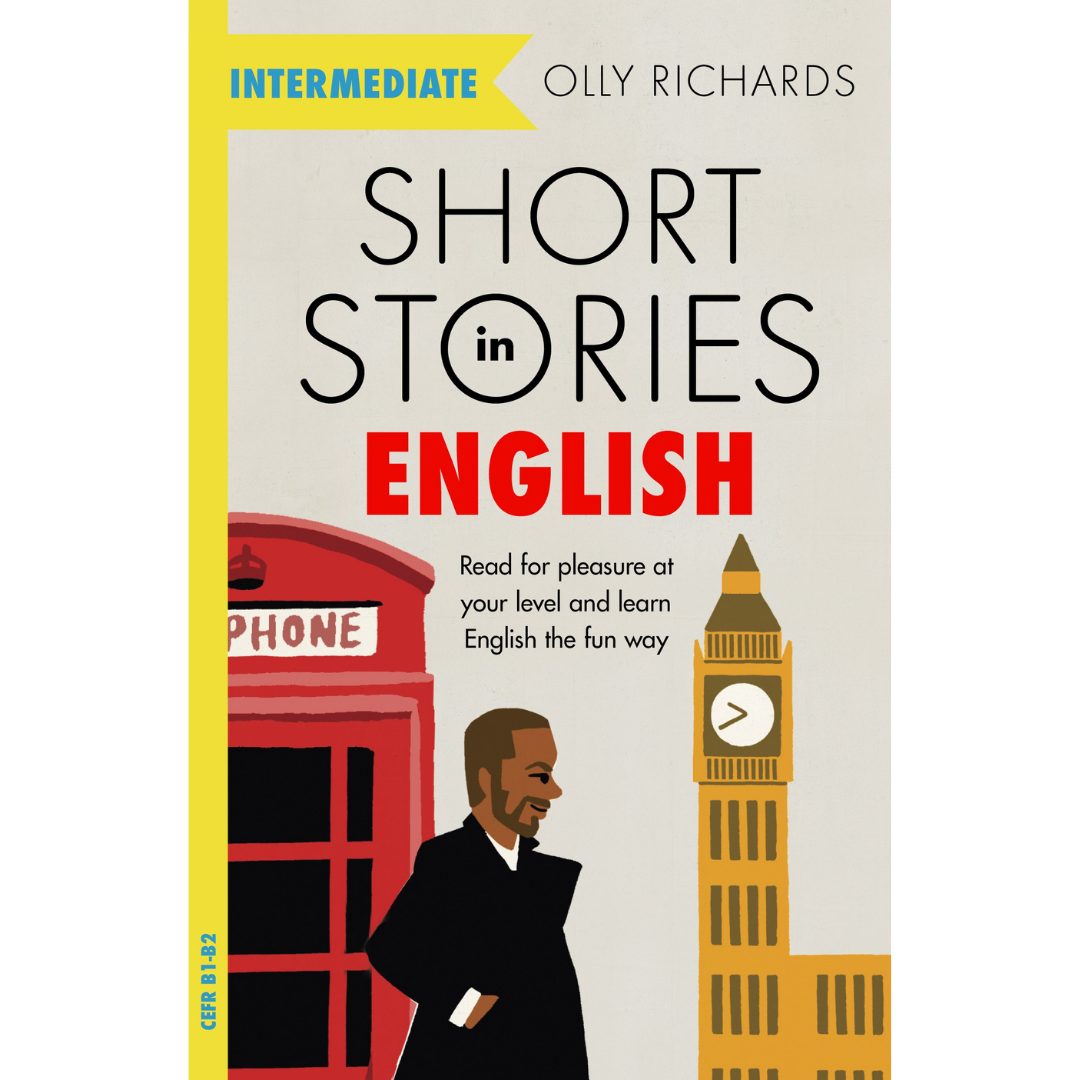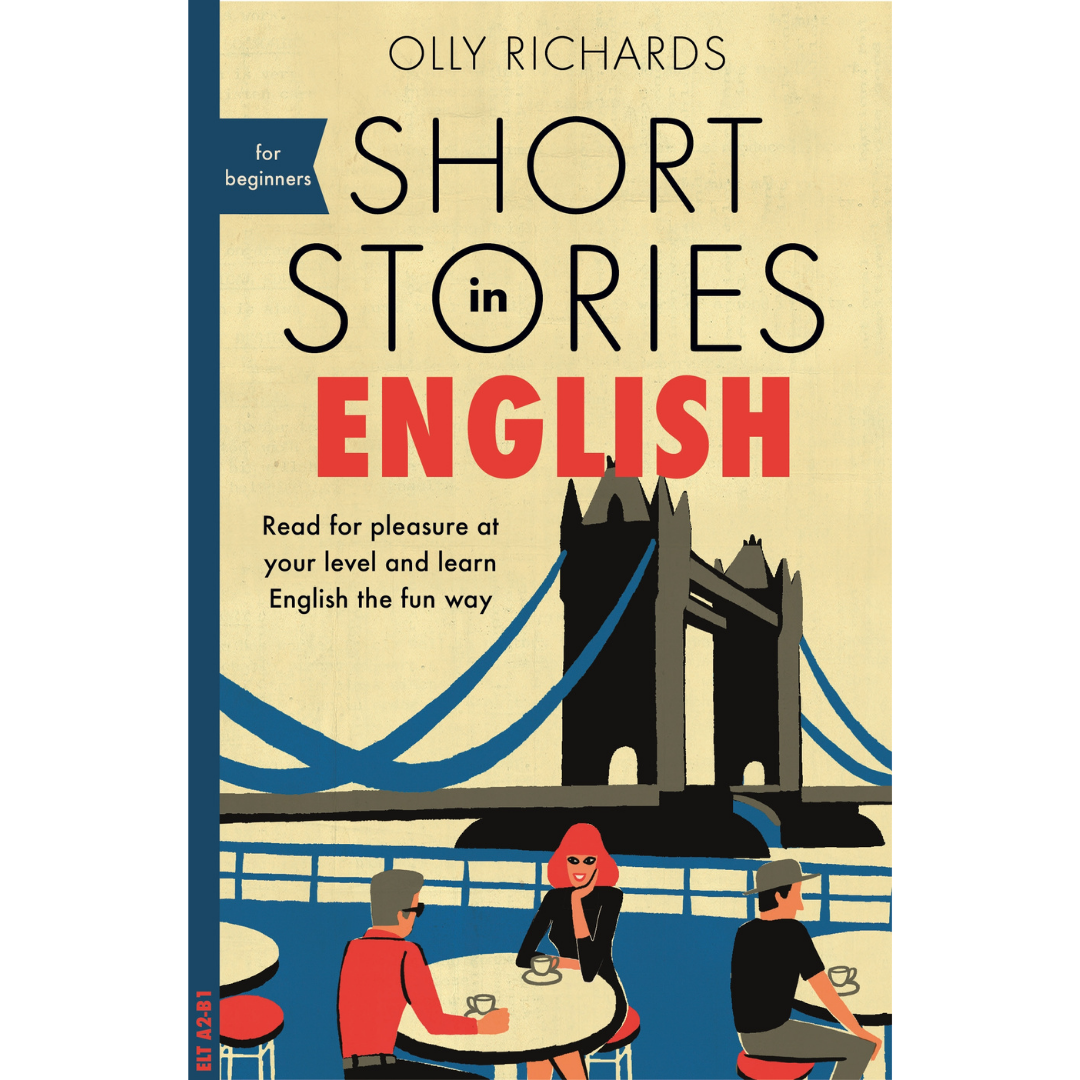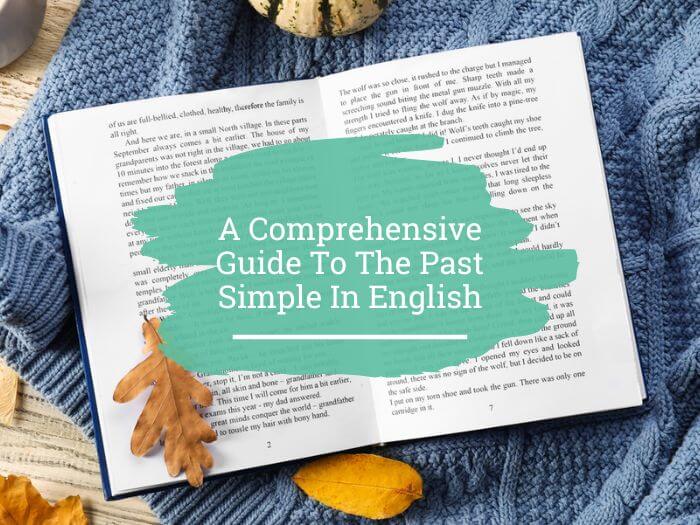Your life is a huge collection of past events and stories that are waiting to be told. But how can you do that in English if you don’t know how to use the past simple, the most common English tense to talk about the past?
Well, you can’t.
But if you want to learn how the past simple works, how we use it, and what mistakes you should avoid when using it, you’ve come to the right place!
Here’s everything you need to know about it.
Table of Contents
Past Simple: How It’s Formed
Okay, first we need to make a distinction here because the way we form the past simple depends on the type of verb we use in the sentence. Are we using a regular or irregular verb?
Let’s have a look at regular simple past verbs first.
Examples Of Simple Past Tense Of Regular Verbs
The past simple of regular verbs is formed by adding “ed” to the verb.
Like this:
- Talk – talked
- Watch – watched
- Play – played
- Wait – waited
- Work – worked
- Call – called
- Live – lived
- Laugh – laughed
- Stay – stayed
- Cook – cooked

If the verb already ends in “-e”, we add “-d” only.
Some examples:
- Love – loved
- Live – lived
- Hate – hated
- Hope – hoped
- Care – cared
- Dance – danced
- Close – closed
- Use – used
- Excite – excited
- Save – saved
Spelling Changes With Past Simple
Sometimes we double the final consonant (stop – stopped). We do this when the base form ends in a single vowel + single consonant:
- Fit – fitted
- Stop – stopped
- Plan – planned
- Jog – jogged
- Rob – robbed
- Slam – slammed
- Beg – begged
- Ship – shipped
But there are some exceptions. When the verb ends in “-w,” “-x,” and “-y”, we don’t double the final consonant.
So:
- Bow – bowed
- Fix – fixed
- Stay – stayed
- Flow – flowed
- Mix – mixed
- Pray – prayed
- Snow – snowed
- Relax – relaxed
- Enjoy – enjoyed
- Marry – married

We also double the consonant in two-syllable verbs if the base form of the verb ends in a single vowel + single consonant, and the word stress is on the second syllable.
- Commit – committed
- Permit – permitted
- Refer – referred
- Compel – compelled
- Occur – occurred
- Repel – repelled
- Expel – expelled
- Confer – conferred
- Recur – recurred
- Admit – admitted
- Regret – regretted
- Prefer – preferred
In British English, we also double the final “l” if the base form has two syllables:
- Travel – travelled
- Cancel – cancelled
- Level – levelled
- Signal – signalled
- Quarrel – quarrelled
- Revel – revelled
- Fuel – fuelled
- Model – modelled
- Marshal – marshalled
- Compel – compelled
- Enrol – enrolled
There are other English spelling rules we need to follow when turning the base form of a regular verb into its past simple form. Here are the most important ones:
We change the “-y” to “-i” for some verbs that end in consonant + “-y”:

- Cry – cried
- Fry – fried
- Carry – carried
- Hurry – hurried
- Apply – applied
- Deny – denied
- Study – studied
- Marry – married
- Reply – replied
- Terrify – terrified
We add “k” to a base form ending in “-c”:
- Panic – panicked
- Picnic – picnicked
- Mimic – mimicked
- Traffic – trafficked
Let’s now look at irregular verbs.
Past Simple Of Irregular Verbs
Irregular verbs have different and unpredictable forms that you’ll have to learn individually. “To be” in the simple past is one example among many:
- be – was/were
- bite – bit
- become – became
I wrote “A Simple Guide To Over 100 Irregular Verbs In English” where you can find 97 more, so forgive me if I don’t go into much detail here.
Let’s now focus on how we form questions and positive and negative sentences using the past simple.
Past simple in positive sentences
The structure of positive sentences in past simple form isn't that complicated. Here’s the formula:
I / you / he / she / it / we / they + verb in past simple form + rest of the sentence

How many examples of this structure can you find in the following section of my book, “Intermediate Short Stories in English”:
‘My name is Yardum,' he said, looking around. ‘I am taking these seven men to the sea town of Spring Field, but we are lost.'
‘My name is Denza,' Denza said, stepping forward. ‘You need a guide.'
‘Yes, as a matter of fact, I do,' Yardum said. ‘I have no money, but I have this gold crown. I will give it to anyone who helps us,' he continued, looking directly at Lummp.
Ari had a question, so he jumped into the conversation. ‘Why must you go to Spring Field? What is there for you?'
‘My friends may be there. Perhaps we are not the last humans,' the man in yellow explained. ‘I need to find out, so we're making the trip.'
Lummp wrote a note to Denza. ‘I want that crown,' it said.
Denza just looked at him.
Then Lummp wrote, ‘This is our adventure! Don't you see?'
Did you find 9? Then you’re right!
‘My name is Yardum,' he said, looking around. ‘I am taking these seven men to the sea town of Spring Field, but we are lost.'
‘My name is Denza,' Denza said, stepping forward. ‘You need a guide.'
‘Yes, as a matter of fact, I do,' Yardum said. ‘I have no money, but I have this gold crown. I will give it to anyone who helps us,' he continued, looking directly at Lummp.
Ari had a question, so he jumped into the conversation. ‘Why must you go to Spring Field? What is there for you?'
‘My friends may be there. Perhaps we are not the last humans,' the man in yellow explained. ‘I need to find out, so we're making the trip.'
Lummp wrote a note to Denza. ‘I want that crown,' it said.
Denza just looked at him.
Then Lummp wrote, ‘This is our adventure! Don't you see?'
The cool thing about the past simple is that the form of the verb stays the same no matter what subject pronoun you use in the sentence. So you can say:
- I went to the park.
- You went to the park.
- He went to the park.
- She went to the park.
- It went to the park (it = a robot?)
- We went to the park.
- They went to the park.

This is why people often say that English grammar is easy compared to other languages. In Italian, Spanish, and French, for example, the past tense form of the verbs changes according to the subject of the sentence, so you’d have to learn different forms. In English, you don’t.
And the same applies to negative sentences and questions.
Aren’t you lucky? 🙂
Past simple in negative sentences
To make a sentence negative, we use “did not” (“didn’t” if you want to use a contraction) before the base form of the verb for all persons. This is the formula:
I / you / he / she / it / we / they + did not (didn't) + base form of the verb + rest of the sentence
Let’s see how many examples you can find in the following paragraph taken from my book, “Intermediate Short Stories in English”:
Why can’t we come in?' I asked the large man standing in front of us. He was wearing a dark suit, and was very tall and strong. He was also blocking the door to Zara’s Nightclub. We could hear the loud dance music behind the door and we really wanted to check it out. I had just lost my job the day before and I needed a night of fun to forget my troubles, so we simply had to find a way to get inside! Plus, I didn’t need any more stress, and this guy was making me mad.
Only one, right? It’s in the last sentence:
I didn’t need any more stress, and this guy was making me mad.
Here are some other example sentences taken from around the web:
- He didn’t dare risk being overheard.
- The code did not demonstrate anything fancy.
- The federal district court did not agree.
- The auction did not release selling prices.
- His ideas didn’t resonate with the audience.
- The government did not enforce rape laws effectively.
- The book printer didn’t wait until asked.
- The jury did not award punitive damages.
- Their interference did not pass without resistance.
- This demonstration did not uphold those standards.
Let’s now have a look at how we form questions.
Past simple in yes / no questions
Here’s the formula:
Did or didn't + I / you / he / she / it / we / they + base form verb
Some example:
- Did I say anything wrong?
- Did you see the movie last night?
- Did he like your T-shirt?
- Did she want to come here?
- Did it work?
- Did you guys see what my partner did at the party?
- Did they sleep well yesterday?
The short answer is always “Yes + subject + did” or “No, subject + didn’t”
Like this:
Speaker A: Did they sleep well yesterday?
Speaker B: Yes, they did.
Speaker A: Did you see the movie last night?
Speaker B: No I didn’t.
Past simple in wh- questions
Here’s how we form them:
Where/ Why / Who / When / How long etc + did / didn’t + I / you / he / she / it / we / they + base form verb

- When did I say such a stupid thing?
- Why didn't you tell me?
- Who did you go there with?
- Where did he come from?
- How did she know that?
- What did the contract say about the job?
- Where did you find such an amazing watch?
- Why didn’t we think about that?
- How long did they stay here for?
In spoken English, we sometimes ask questions by saying a statement (which is not constructed like a question) with rising intonation.
We do this when we want to ask for confirmation of something, show we’re surprised or indicate we can’t believe what we’ve just heard.
Some examples:
Speaker A: I told your boyfriend about your secret.
Speaker B: You told him what I said?
Speaker A: He failed the exam for the fourth time? I can’t believe that!
Speaker B: Yes, he did! Crazy!
Speaker A: Did you know you and I used to go to the same school?
Speaker B: We went to the same school? How’s that possible?
Let’s now learn how we use the past simple.
How To Use Past Simple
We use the simple past when we talk about actions, events, or situations that we see as finished in the past.
So we use it to:
- narrate stories;
- talk about single momentary past events;
- talk about things that happened over a period of time in the past;
- talk about repeated past events;
- talk about a sequence of events that happened in the past;
- talk about events that might have interrupted or stopped another early event;
- talk about events that are happening at the same time.
But we also use it:
- in the “if” clause of imaginary conditional sentences with present meaning;
- to sound polite when making requests and asking questions;
- in “would rather” sentences.
I’ll explain everything.
Past simple to narrate stories

The simple past is often used to tell stories. Look how many times I used it in this passage from my book, “Short Stories in English for Beginners”:
Sylvia could not believe it. ‘There are lights on in the house!' she cried. She followed the path down to the lake. She went over to the house.
It was late afternoon, but she definitely saw orange lights inside. She walked around the outside of the house. She wanted a view of who was inside.
Imagine how many times you’ll see the past simple tense by reading the whole book!
Past simple to talk about single momentary past events
For example:
- I bought a house in 2013.
- They got married a few years ago.
- Yesterday she found a puppy in the street.
Past simple to talk about things that happened over a period of time in the past
- I lived in Australia for two years when I was younger.
- We went to the same school when we were children.
- He studied biology in Vienna in his 20s.
Past simple to talk about repeated past events
- I studied English every afternoon when I was a kid.
- Picasso created many works of art in his life.
- We went to French classes every Sunday when we lived in Paris.

Past simple to talk about a sequence of events that happened in the past
- I woke up, had breakfast and went to work.
- She first called me and then disappeared.
- We went to the cinema at 7 pm and came back home at about 10 pm.
Past simple to talk about events that might have interrupted or stopped another early event
- He was watching the football game when I arrived (note that “was watching is past continuous, not past simple)
- I was driving when suddenly a cat crossed the street and made me go off-road.
- We were having breakfast when she knocked on the door.
Past simple to talk about events that are happening at the same time
- She watched TV while I was cooking.
- They played soccer while their parents watched them.
- We didn’t watch him while he was singing.
So, in general, the past simple is the “standard” tense we use to talk about the past. However, sometimes, although we use the past simple, we’re talking about the present, not the past.
Here are three situations when this is the case.
Past simple in the “if” clause of imaginary conditional sentences with present meaning
- If I had one million dollars, I would travel the world.
- I would tell you the answer if I knew it. But I don’t know it!
- If she studied a bit more, she would achieve better results.
Here we use the past simple form of the verbs (had, knew, studied), but we’re not talking about the past. Instead, we’re talking about an imaginary situation in the present.
To sound polite when making requests and asking questions
- I wondered if you could join our meeting today.
- I just wanted to ask you if you’d like to join me for an interview on my podcast.
Also in these examples we use the past simple form of the verbs (wondered, wanted) even though the meaning is present.
When using “would rather”
We can use “would rather” followed by the verb in past simple form to say that we prefer someone to do something. Again, the past simple has present meaning, not past.
- I would rather you didn’t tell her.
- I would rather you went home now.
- I would rather you came back as soon as possible tonight.
It’s now time to look at some common mistakes so you can avoid them.
Common Mistakes With Past Simple
I’ve seen learners of English make various mistakes with the simple past tense in English. Here are the most frequent ones:
Using “was” with the base form of the verb:
Incorrect: I was go to the shopping centre.
Correct: I went to the shopping centre.
Believing the simple past tense is only used for events that happened a long time ago.
That’s not true. The past simple can be used for something that happened one minute ago as well as for something that happened during the times of dinosaurs. Both these sentences are perfectly fine:
- They came here one second ago.
- They came here 1,000,000 years ago (an ancient alien civilisation perhaps!?).
Using irregular verbs as if they were regular.
Here’s what I mean:
Incorrect: We goed to the supermrktet.
Correct: We went to the supermarket.
One way to avoid this is to learn the past form of irregular verbs.
Not using the past simple when talking about the past.
This often happens. I’ve seen many students avoid using the past simple.
Incorrect: Yesterday I see a movie and then go to the beach.
Correct: Yesterday I saw a movie and then went to the beach.
Asking questions using the past simple form of the main verb instead of the base form.
This is another common mistake:
Incorrect: Did you ate lunch with him yesterday?
Correct: Did you eat lunch with him yesterday?
Using the main verb in short answers
Incorrect: Did you eat lunch with him yesterday? Yes, I ate.
Correct: Did you eat lunch with him yesterday? Yes, I did.
Using only “not” instead of “did not” in negative sentences
Incorrect: They not eat with us.
Correct: They didn’t eat with us.
Making negative sentences using the simple past form of the main verb instead of the base form.
Incorrect: We didn’t slept in that room.
Correct: We didn’t sleep in that room.
Final Thoughts On The Simple Past In English

So, here you are! You've reached the end of another grammar guide. I hope it was useful.
What now?
Well, you have seen many examples of the simple past tense in English. So now it would be a great idea to try to notice this tense while watching a movie, listening to music, reading books in English, or conversing in English.
This is how you will maximise everything you have learned in this guide.
Try to learn the past simple in context. The best place to find it is in stories because this verb tense is used to narrate events and talk about the past. The StoryLearning method can help you a lot with this!
You’ll meet the past simple again and again in engaging short stories that will help you learn and assimilate it.

Olly Richards
Creator of the StoryLearning® Method
Olly Richards is a renowned polyglot and language learning expert with over 15 years of experience teaching millions through his innovative StoryLearning® method. He is the creator of StoryLearning, one of the world's largest language learning blogs with 500,000+ monthly readers.
Olly has authored 30+ language learning books and courses, including the bestselling "Short Stories" series published by Teach Yourself.
When not developing new teaching methods, Richards practices what he preaches—he speaks 8 languages fluently and continues learning new ones through his own methodology.










































